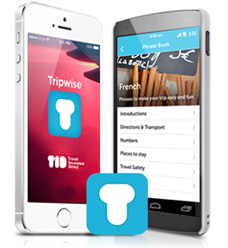Bali Dengue Fever Alert
Bali Dengue Fever Alert by Phil Sylvester
TID Travel Safety Expert
There is an alarming worldwide surge in Dengue Fever, and travel to Bali is the greatest risk for Australians. Health officials have stopped short of calling it an epidemic, but there's alarm at the number of cases of Dengue Fever this year.
There were 2771 hospitalisations in the first 3 months of the year, and sadly, 12 of those people died. That's more infections than all of 2009. Bali is not the most badly affected place on earth for the tropical disease; there's a full blown epidemic in South America. Brazil has had 750,000 cases and more than 300 deaths this year.
Is Dengue Fever dangerous?
But Bali is dangerous for Australians, simply because so many go there. Western Australians are most at risk. With 54 flights a week making the 3-hour hop, they treat it like their second home.
4 years ago, a total of 16 people returned to Perth with something other than a woodcarving and braided hair. This year it's 150, and counting.
That prompted the WA health department to put out a travel alert warning about the disease and reminding people to take precautions.
How is Dengue Fever spread?
Dengue Fever is spread by the Aedes mosquito (infected human-mosquito-human), but the pesky insects live indoors, or in shaded areas and are active during the day, making them hard to avoid.
Lots of people get infected but don't have symptoms worse than a mild flu-like feeling. Get a good dose and you'll know it. Dengue goes by the nickname breakbone fever because of excruciating muscle and joint pain. An American woman who caught it in Key West, Florida described it as "indescribable, crazy pain".
With proper treatment most people will make a full recovery. But there are four strains, and getting one makes it more likely you'll get the potentially deadly Dengue Hemorrhagic Fever from the other strains.
How do I avoid Dengue Fever?
Unfortunately, there is no vaccine; you have to do the best you can to prevent being bitten by mosquitoes.
That means making sure your accommodation is mosquito-proof, or that you use bed nets, and insect repellent. It's also important to cover up with loose fitting clothing on the arms and legs. Add some DEET insect repellent to exposed skin, and make sure the kids are protected too.
Reports of Dengue Fever usually peak in the rainy season, but right in the middle of the dry low-humidity period Australians are still falling victim. On July 22nd one Perth woman posted in an online forum that her friends have just returned home and been diagnosed with the disease. Another said her husband had spent 3 days in a Balinese hospital with the disease.
It's not clear why this year is worse than any other. A senior Balinese health official says this is just a typical 5 year cycle, but previous epidemics haven't been this severe.
Others believe climate change is enabling the Aedes mosquito to expand its range. The disease was virtually unknown until the 1950's and perhaps it's reached a tipping point. None of those theories has been proved.
Meanwhile, Balinese authorities have begun a mosquito eradication program, but expect this will be the worst year on record for the disease.
Be Tripwise
We believe in looking out for our travellers and our advice is there to try and help you avoid trouble or danger around the world. Be Tripwise and take us with you on your next trip.
